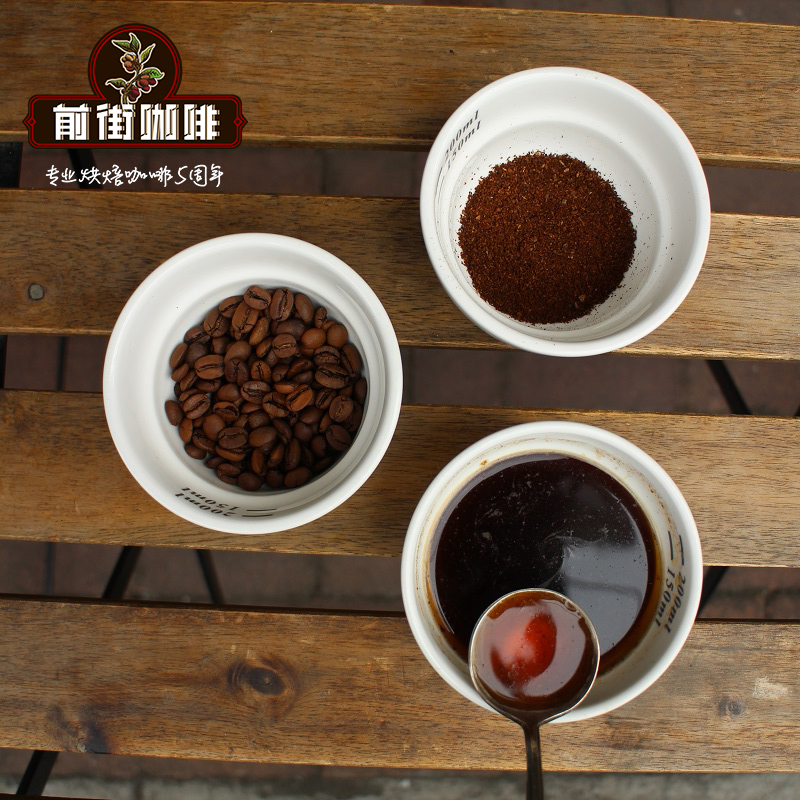Burundian coffee history and flavor, hand data reference.

Professional coffee knowledge exchange more coffee bean information please follow the coffee workshop (Wechat official account cafe_style)
Burundi has the most diverse and successful coffee industry in the world, and has its own characteristics. Coffee in this country was introduced by Belgian colonists in 1930 and is now grown only on small farms. Unfortunately, many of these farms are on the border with war-torn Rwanda, putting pressure on coffee production. Almost all coffee produced in Burundi is Arabica coffee beans, while coffee trees in Ngozi are planted more than 1200 meters above sea level. Burundian coffee has a rich aroma and excellent acidity, and most of its products are exported to the United States, Germany, Finland and Japan.
Burundi is a more and more important player in the arena of boutique coffee. Burundi is one of the smallest countries in Africa, with coffee grown all over the country. About 150 centralized washing stations, which are mostly government-owned (that is starting to change), are the focus of the country's coffee business, processing coffee collected from hundreds of small family farms. This mode of operation is largely untraceable and has caused concern, but the authorities are now vigilant and are taking measures to improve the flow of information from farmers to bakers. Potato deficiency, a bacterial disease from neighboring Rwanda that severely damaged Burundi's coffee industry, is now under control. The coffee from Burundi and Rwanda is also very similar in flavor.
East Africa has always been a high-quality coffee civilization, and the land of Burundi has not been forgotten. This landlocked African country with a land outline similar to that of the heart, with excellent volcanic soil, a microclimate with different characteristics, and an annual rainfall of nearly 1200 millimeters, all of which provide excellent conditions for coffee cultivation.
The climate of Burundi is tropical plateau climate, with a very large temperature difference between day and night. The colonists found that bourbon beans were the most suitable coffee varieties to grow in the local climate. However, due to the suspension of investment in coffee research, bourbon became the only coffee variety left in the country. And has been using full-water treatment.
Although the geographical environment of Burundi is very suitable for coffee cultivation, there are no coffee farms in the country, and its coffee farming is conducted entirely in the form of small family farms, which varies greatly in quality. and years of war and social unrest have also made its coffee farming very chaotic. However, it has to be admitted that it still has the potential to produce high-quality coffee.
Since 2008, Burundi has begun to transform towards a boutique coffee industry, leading to the emergence of more procurement methods such as direct trade and traceability of origin. In 2011, Burundi held a coffee quality competition called the prestige Cup (Prestige Cup), which was also the guide competition before the formal holding of the larger Cup of Excellence Cup. Coffee beans from each wet treatment plant are stored separately, ranked by quality, and then sold at auction, all of which have production and marketing experience. This also means that unique high-quality coffee beans from Burundi will gradually appear on the market, which will be of great help to the improvement of quality.
Burundian coffee has rich flavors such as citrus, caramel, tea and grass, with a subtle sense of complexity, but people who have drunk it will never forget its taste. This is the case with coffee grown with stories and emotions. good coffee is to tell us that no land is to be forgotten by the world.
Important Notice :
前街咖啡 FrontStreet Coffee has moved to new addredd:
FrontStreet Coffee Address: 315,Donghua East Road,GuangZhou
Tel:020 38364473
- Prev

What do you know about Indonesia's Mantenin? Manning's suggestion on the proportion of hand flushing
Professional coffee knowledge exchange more coffee bean information please follow the coffee workshop (Wechat official account cafe_style) Mantenin birthplace: Mantenin's predecessor is Java coffee, at that time the Dutch moved Java coffee to the hills on the west side of Sumatra bordering the Indian Ocean, that is, Mandainingao on the border between Jiangsu and Jiangsu provinces, in order to facilitate the export (Indonesia is a Dutch colony).
- Next

What's the flavor of Kenyan coffee? Kenya is suitable for cooking?
Professional coffee knowledge exchange more coffee bean information Please pay attention to Coffee Workshop (Wechat official account cafe_style) Kenya, located in East Africa, is one of the major coffee producing countries. More than 6 million people in the country are engaged in the coffee industry, mostly in the form of a combination of small farmers and cooperatives. Coffee trees in Kenya are mostly planted at 1400-2000 meters above sea level, and the growth area includes Ruiri.
Related
- Detailed explanation of Jadeite planting Land in Panamanian Jadeite Manor introduction to the grading system of Jadeite competitive bidding, Red bid, Green bid and Rose Summer
- Story of Coffee planting in Brenka region of Costa Rica Stonehenge Manor anaerobic heavy honey treatment of flavor mouth
- What's on the barrel of Blue Mountain Coffee beans?
- Can American coffee also pull flowers? How to use hot American style to pull out a good-looking pattern?
- Can you make a cold extract with coffee beans? What is the right proportion for cold-extracted coffee formula?
- Indonesian PWN Gold Mandrine Coffee Origin Features Flavor How to Chong? Mandolin coffee is American.
- A brief introduction to the flavor characteristics of Brazilian yellow bourbon coffee beans
- What is the effect of different water quality on the flavor of cold-extracted coffee? What kind of water is best for brewing coffee?
- Why do you think of Rose Summer whenever you mention Panamanian coffee?
- Introduction to the characteristics of authentic blue mountain coffee bean producing areas? What is the CIB Coffee Authority in Jamaica?

